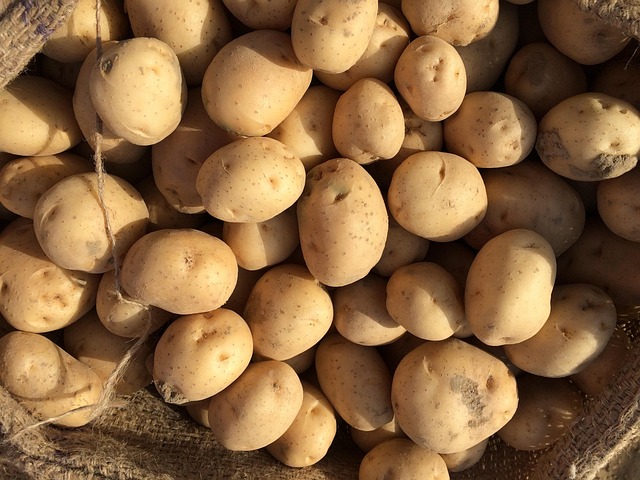Amylose from Potatoes: Structure, Properties, and Applications
Tuesday, February 25th, 2025
Amylose is a polysaccharide composed of glucose molecules linked by α(1→4) glycosidic bonds. Derived from potatoes, amylose serves various industrial and scientific applications due to its unique properties. This article explores the structure, properties, and non-food-related uses of potato-derived amylose.
Structure and Composition of Potato-Derived Amylose
Molecular Structure
– Chemical Formula: (C₆H₁₀O₅)n
– Structure: Linear chain of α-D-glucose units linked by α(1→4) bonds
– Molecular Weight: Varies depending on polymer length
– Solubility: Poorly soluble in cold water, forms a gel in hot water
Key Characteristics
– Forms helical structures in solution
– Can form inclusion complexes with various molecules
– Displays limited branching compared to amylopectin
Physical and Chemical Properties
Hydrophilic Nature
– Can absorb water and swell under certain conditions
– Forms films and gels, useful for industrial applications
Iodine Binding Ability
– Reacts with iodine to form a blue complex, commonly used in analytical chemistry
Thermal Stability
Thermal Stability
– Undergoes gelatinization at elevated temperatures
– Decomposes under extreme heat
Industrial and Scientific Applications
1. Biodegradable Materials
Potato-derived amylose is used in the development of:
– Biodegradable plastics and packaging materials
– Sustainable coatings for various products
2. Pharmaceutical and Medical Uses
– Used in drug delivery systems due to its controlled release properties
– Plays a role in the production of biocompatible hydrogels
3. Analytical and Laboratory Applications
– Employed in starch-iodine tests to detect the presence of amylose
– Used in chromatographic techniques for molecular separation
4. Textile and Paper Industry
– Utilized as a binding agent in textile manufacturing
– Acts as a surface treatment in paper production for improved strength and texture
5. Adhesives and Binders
– Component in eco-friendly glues and industrial adhesives
– Used in pelletizing processes for various industries
Future Research and Innovations
Potato-derived amylose continues to be an area of research for:
– Sustainable material development in packaging and coatings
– Biomedical advancements in drug carriers and tissue engineering
– Improved biodegradable polymers for reducing environmental impact
Conclusion
Potato-derived amylose is a versatile polysaccharide with diverse applications beyond its role in food. From biodegradable materials to pharmaceutical innovations, its unique properties make it valuable across multiple industries. Ongoing research aims to expand its potential for sustainable and advanced scientific uses.
City Chemical LLC is a top producer of chemicals like: Amylose, Potato CAS: 9005-82-7.
Visit City Chemical at www.citychemical.com.